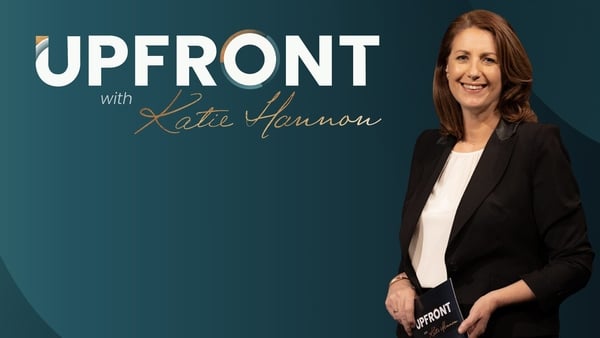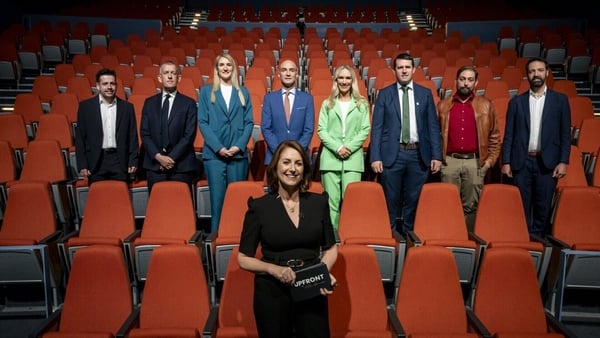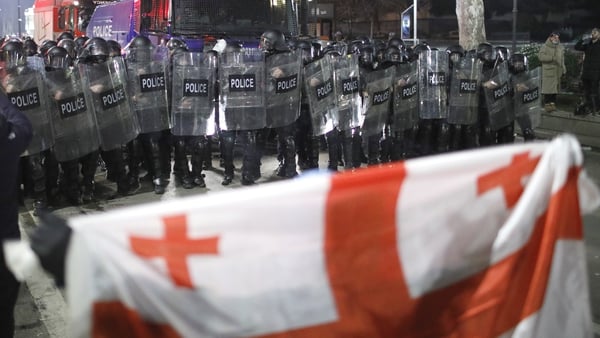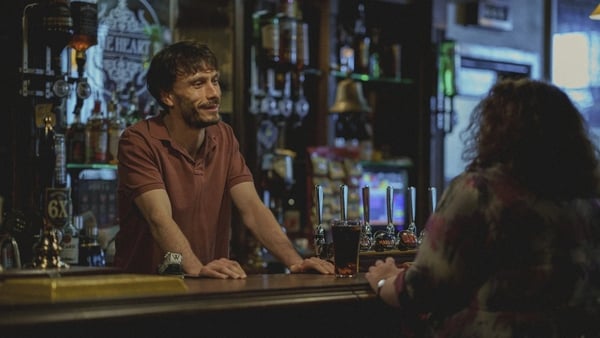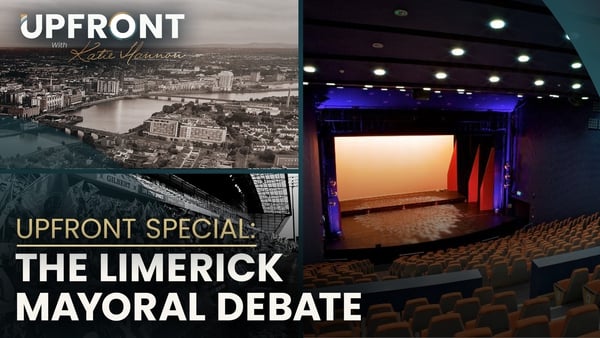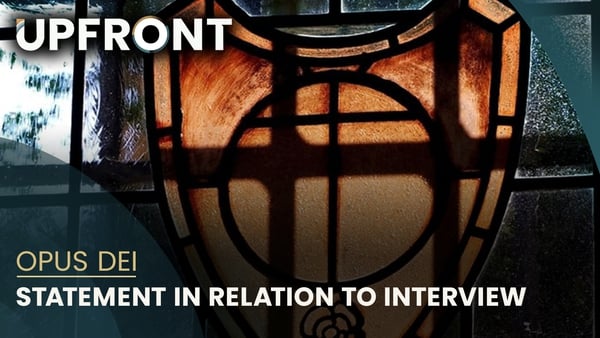Irish nightclubs will be allowed to remain open until 6am and serve alcohol until 5am under legislation set to be brought in later this year.
The Sale of Alcohol Bill, which is currently under consideration in the Oireachtas, was published by the Department of Justice last October with the intention of modernising Ireland's licensing laws.
Several public health charities have this week called for a review of the Bill over fears that liberalising licensing laws could lead to increased alcohol-related disease, injuries, crime, public disorder, public safety and domestic violence.
Last year, then Tánaiste Leo Varadkar predicted the Bill would be "good for hospitality businesses, boost the wider experience economy, and generate employment."
As part of The Conversation from RTÉ's Upfront with Katie Hannon, we asked two people to join our WhatsApp group to discuss the proposed changes to licensing laws.
Sheila Gilheany is the CEO of Alcohol Action Ireland.
Sunil Sharpe is a techno artist and nightlife campaigner with Give Us the Night.
Sheila Gilheany: Hello Sunil. We welcome the streamlining of the licensing process much of which is currently a mess of multiple pieces of legislation, some of it completely outdated.
We also have no problem with enhancing and diversifying the night-time economy offerings.
However, we do question the assumption that in order to do this there must be additional opportunities for the use of alcohol and indeed that the organising framework for the night-time economy is actually the licensing laws of the country.
Beyond the night-time economy though, the Sale of Alcohol Bill is also the legislation which will control off-licences and drink delivery sales.
Given that this new legislation will likely be in place for decades it is important to get it right. We want to ensure that public health concerns are addressed before moving ahead with any changes to our licensing laws.
Our call is to have a Health Impact Assessment (HIA) carried out on the Bill before doing anything further.
A HIA is a structured process to determine the impact of proposed policies, laws, programmes or plans on the health of communities to ensure they are more inclusive, more equitable, and more sustainable for everyone.
Sunil Sharpe: Hi Sheila, good to talk to you in this format.
I understand your concerns. From our perspective, we have been waiting a long time for reform, and one of the key parts of reform is extending opening hours. As well as the excessive licensing costs obviously, and a better range of suitable licences.
Without that, it isn’t a meaningful reform. For us this isn’t a radical reform either, it’s quite moderate and not as far as we think it could go. It is workable though, and we just want to get on with it now.
The Sale of Alcohol Bill is almost 20 years in the making. It was intended as the overarching piece of legislation that would codify and modernise our archaic licensing system.
During that time we’ve had to put up with outdated laws that don’t suit the needs of a modern society. In fact, rather than amend the laws for the better, changes that were made by the Government in 2008* literally destroyed our sector overnight.
[*Editor’s note: This refers to the Intoxicating Liquor Act 2008 which removed the provision for nightclubs to stay open later than 3am].
According to our own calculations, we have gone from 328 nightclubs in 2008 pre-amendments, to just over 80 today.
Without suitable licences for nightclubs and cultural venues, nightlife has become extremely monotone. Now finally this government has published the general scheme of the bill, which might help us rebuild our amount of dance venues. Dance venues are important social spaces, that have a purpose beyond just drinking.
Dancing in itself is hugely beneficial for the body and mind. We want a diverse nightlife, we want people to have choices at night, we want more work opportunities, and for our creative communities to forge their careers in Ireland. Too many people are leaving. You and your colleagues might not see this Sheila, but our sector and community is in a very depleted state. We need urgent action.
In our view the best and only truly effective health impact assessment is to change the licensing laws.
Sheila Gilheany: We definitely don't have a problem with making sure activities like dancing etc can operate and be available. Our concern is with increasing licensing hours. Alcohol is no ordinary product and that is why we need restrictions on its sale and availability.
Public health should be a key objective stated in all preambles to alcohol licensing legislation and regulations. Currently that is not the case. This is leading to the view that the purpose of the Bill is simply an administrative matter to facilitate businesses.
There is significant evidence from multiple countries that increasing alcohol availability whether through longer licensing hours or greater density of alcohol outlets leads to increased alcohol use and with it, increased alcohol harms such as injuries, assaults, public disorder, domestic violence, ill health, both physical and mental and significant impact on children.
The Bill provides for extended opening hours for bars and pubs from 11.30pm to 12.30am and to make it easier for them to get further extensions to 2.30am.
Ireland already has a problem with alcohol with four alcohol-related deaths every day*, the third highest** rate of Fetal Alcohol Spectrum Disorders (FASDs) in the world and 200,000 children living with parental problem alcohol use*.
[*Editor’s note: From research carried out by Alcohol Action Ireland and University College Cork in 2022].
[**Editor’s note: This stat appeared in a report published in JAMA Pediatrics in 2017].
Alcohol is the leading factor in ill health and deaths of young people. 37% of 15-24 year-old drinkers have an Alcohol Use Disorder (AUD)*.
[*Editor’s note: From research carried out by the Health Research Board (HRB) in 2022. AUD is defined a problematic pattern of alcohol use that clinically significant impairment or distress].
We know that at weekends 30% of presentations in Emergency Departments are alcohol related. Do we want to pour more alcohol into our EDs which are already buckling under the strain?
[*Editor’s note: From research published in the British Medical Journal in 2018].
These are the sort of health concerns that we think need to be considered when extending licensing laws.
Sunil Sharpe: Yes, but as you're aware, alcohol (although an ancillary offering in many of the venues we're talking about) is still a part of the business model. Especially given the overheads involved in running a venue, the sale of alcohol (just like charging on the door) is a necessary component of the business model.
The same could be said for concert halls, sports clubs or grounds, hotels, casinos and so on. Some people like to drink alcohol, but the clear proof is there that Irish people are drinking much less than previous generations*, and much less in licensed premises now too. Your way is essentially, 'drinking is bad, don’t do it’ but it’s such a reductionist approach, and counter-productive in ways.
[*Editor’s note: Revenue data from 2022 showed spend on alcohol is down 32% since 2001].
It’s like you don’t want to reduce the harm as a priority, but more so stop drinking happening entirely, which is completely unrealistic.
What do you think happens at two or 3am. That everyone goes home to sleep?
This is when people go to house parties or unregulated events and may continue to drink (if that isn't where they already had started their night, as many do now).
Is it better that they drink there or in regulated licensed premises, with staff, security and potentially more of their friend network?
Sheila Gilheany: What you seem to be saying is that the sale of alcohol is required to keep business going. I appreciate that there are many pressures on businesses such as high rents, insurance etc.
Perhaps there should be action to reduce these pressures rather than seeing the sale of alcohol as the answer.
Sunil Sharpe: Well, yes, it's a big part of the business model, no-one is denying that. If there were more alternatives, of course you'd like to see venues go in new directions.
Some do, food has been a useful addition and could be in the later hours for some. Non-alcoholic products are becoming more popular too.
Overall, though, and it needs to be said, the amount of venues we're talking about here is tiny.
Late bars account for under 5% of all public houses, and their times will be unchanged at 2.30am. Dance venues themselves account for a smaller number of businesses again.
In 2009 it was estimated that nightclubs accounted for 5% of overall alcohol consumption in Ireland*. Today it's probably closer to around one or 2%.
[*Editor’s note: From a report published by the Irish Nightclub Industry Assocation in 2009].
Is the prospect of these venues opening for a couple of extra hours really a big cause for concern? The fact that they will close after late bars is a very long-overdue safety measure in terms of crowd control on the streets.
This was demonstrated back in 2006 when we had a form of staggered closing in Dublin, with associated street crime figures dropping during this period.
In terms of action - rent, rates, insurance, licensing costs, talent fees, and so on, are all pressures, but show no sign of abating
Sheila Gilheany: Sunil, I can see and appreciate that you are coming to this Bill from the point of view of nightclubs.
This is only one aspect of the Bill. Pubs can stay open an hour later and more easily get late night extensions. There are also provisions for a range of other types of venues to get alcohol licences who would not have previously had them.
In addition, this Bill will also provide the legislation for off-licences and drink deliveries. It is a long complex Bill (more than 450 pages) with multiple measures that could have an impact on public health and indeed on other services such as policing, transport, street cleaning etc.
When we call for a Health Impact Assessment it is to make sure that all of the implications are considered and not just around nightclubs.
It is also important to put in place statutory ways of monitoring the ongoing impact of any changes in the legislation. It would certainly be wise to also include a sunset clause in the legislation that says after three years, the changes could be examined in the light of the evidence of their effects.
Sunil Sharpe: I'm obviously not a spokesperson for pubs but as someone who greatly appreciates the cultural value and tradition of pubs in Ireland, I see nothing wrong in standardising the times across all nights.
Whether some pubs chose to close at 12.30am remains to be seen.
Many won't. Many don't even open every night of the week anymore. Again, the on-trade is not the issue, the only upward trend in terms of consumption is in the home.
There are many considerations in relation to increased footfall in local areas, but to be fair the pros far outweigh the cons. Ireland in general is a shell of what it was at night, and we need to bring more life into our towns and cities.
Should it all revolve around activities that relate to alcohol? I definitely don't think it should, but we have to help everyone, and if more flexibility will encourage people to go out to their local pub, I see nothing wrong with that.
I agree with you on the sunset clause, for the most part. We suggested pretty much the same thing, that the laws be reviewed, for the good of everyone in this conversation. What worked, what didn't work?
Sheila Gilheany: What we see is that there is not enough attention being given to those who will have to mop up the problems of increased alcohol use. Part of the problem here is that this legislation is coming from the Department of Justice while another Department, Health, has developed legislation which aims to reduce alcohol use through measures such as controls on advertising of alcohol which is something that really drives alcohol consumption.
Unfortunately, although it was passed in 2018, it has not yet been implemented.
At the very least before introducing new measures around alcohol we should implement what has already been agreed by the Oireachtas.
Alcohol needs to be looked at in the round. What we have at the moment is a policy mismatch with different departments looking at different aspects of it with competing interests. Perhaps what is needed is some kind of overarching body which would co-ordinate all aspects of alcohol policy with a view towards reducing the harm from alcohol which right now costs Ireland billions annually.
Sunil Sharpe: I’ve enjoyed the engagement today, Sheila, and I hope that we can communicate more in the future.
There is a lot we actually agree on, and I think a lot of that is centred around safety.
Another issue that has come up before in my discussions with medical experts is the problem of serving people when they are drunk.
It’s going to be extremely important that later opening and later access to alcohol comes with a warning and helpful advice for operators, staff and patrons to be extra responsible.
We’re not here to promote excessive drinking at all, night-time venues however are our workplaces, our creative spaces, our social spaces.
We want to do what we do responsibly, but also to be trusted to do it. We are still living in something of a prohibitionist society in Ireland when it comes to alcohol. Personally, I see nothing different to drinking at 5pm than I would at 5am.
It’s the manner in which people drink that matters.
Sheila Gilheany: Thanks Sunil.
We are very much focused on putting forward the evidence and have no other interest except to make sure that we can learn from the experience around the world.
Read last week's edition of The Conversation, where we asked if betting tax income is fairly distributed, here.
We need your consent to load this Microsoft Forms contentWe use Microsoft Forms to manage extra content that can set cookies on your device and collect data about your activity. Please review their details and accept them to load the content.Manage Preferences


